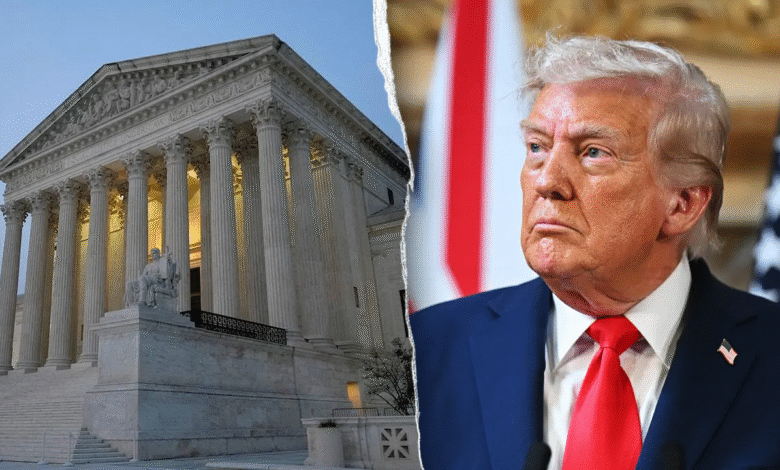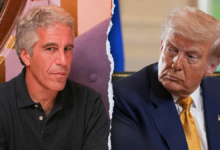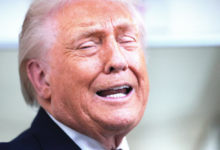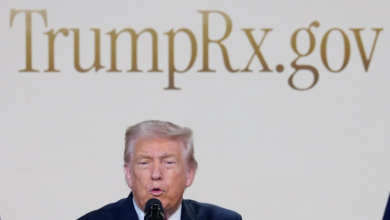Trump Hit With Brutal Supreme Court Rebuke on Tariffs and Executive Power
The justices appeared deeply skeptical of Trump imposing widespread tariffs.

President Donald Trump suffered a stinging defeat at the Supreme Court on Wednesday, with justices expressing serious doubts about his authority to impose sweeping tariffs.
Trump called the case a “literally, LIFE OR DEATH for our Country,” but the questions posed by the Court suggested his arguments regarding emergency powers might not withstand scrutiny. The debate centers on the legality of the president’s use of emergency powers to impose tariffs on imports from more than 100 countries—a move with far-reaching consequences for American consumers and businesses, and a clear limitation on presidential power.
During the hearings, the justices—some of whom were appointed by Trump—sharply criticized U.S. Attorney General John Sauer, who struggled to defend the administration.
Chief Justice John Roberts emphasized the constitutional risks, noting that the power to impose tariffs “has always been a primary power of Congress.” The doctrine of “core issues,” a legal principle requiring Congress to explicitly authorize federal agencies to act, was invoked, suggesting it would limit the president’s actions in this area.
Judge Amy Coney Barrett questioned Sauer on the legal basis for the tariffs, asking him to cite a single instance where the phrase “import regulation” had been used to grant “authorization to impose tariffs.” She expressed dissatisfaction with his response, adding that none of the cited cases actually referred to “granting authorization to impose tariffs.”
Judge Neil Gorsuch delivered one of the most scathing criticisms, warning of “a one-way, gradual, and continuous accumulation of power in the hands of the executive branch, at the expense of the people’s elected representatives.” He questioned the administration about the limits it intended to place on presidential foreign policy.

Trump justified his tariffs by declaring a national emergency due to the U.S. trade deficit. The administration argued that the tariffs were necessary to reduce the deficit and stimulate American manufacturing. But more than a dozen states and small businesses challenged the measure, arguing that it infringed on Congress’s power to impose tariffs.
The dispute centers on the International Emergency Economic Powers Act (IEEPA), a 1970s law that authorizes the president to regulate or prohibit transactions involving foreign entities during a national emergency. The government argued that the trade imbalance poses a threat of “major economic and national security catastrophe.”
Opponents countered that Congress never delegated the power to impose tariffs under the IEEPA. “Tariffs are taxes,” said attorney Neal Katyal, representing the small businesses, in court. “They’re taking money out of Americans’ pockets and putting it into the U.S. Treasury. Our Founding Fathers gave that fiscal power to Congress alone.”

Sauer argued that the president’s measures were designed to regulate foreign trade, not to increase revenue, which he called “purely incidental.” Katyal disputed this claim, pointing out that the government memo projected $4 trillion in revenue and accusing Trump of bypassing Congress to impose one of the largest tax hikes “in our lifetime.”
Against all odds, several briefs were filed in support of the plaintiffs, drawn from conservative, liberal, and business groups—traditional Trump allies—opposed to the tariffs.
While Trump warned that a court defeat would be disastrous, officials in his administration indicated they could use other powers if the Supreme Court ruled against him. Katyal acknowledged that the administration had other tools at its disposal to impose these tariffs.
Wednesday’s hearing marked a rare moment of outright skepticism from a court long favored by Trump, suggesting that the justices clearly define the limits of executive power and reminding everyone that Congress still controls the nation’s resources.







